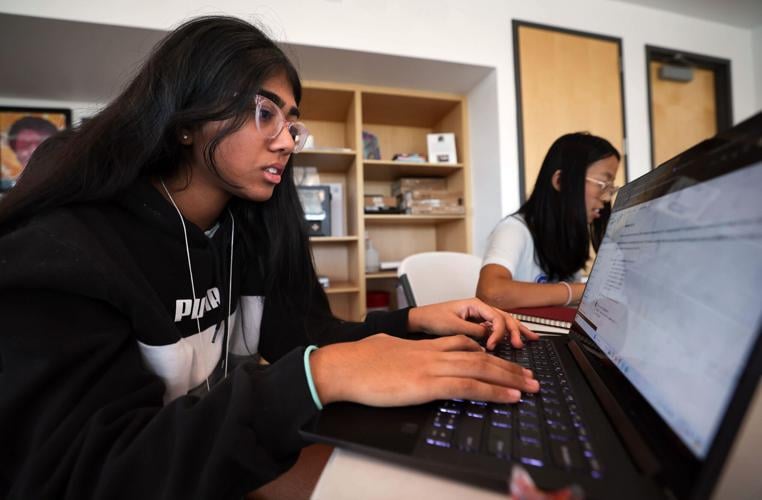A summer camp in Tucson is teaching girls the skills to be future leaders in quantum computing.
Quantum Quest, a free all-girls camp, was established in 2022 as a partnership between The Coding School's Qubit by Qubit, the University of Arizona and Girl Scouts of Southern Arizona. It’s intended to help prepare girls for a future in STEM (science, technology, engineering and mathematics) by providing them with foundations in quantum computing, quantum mechanics, and coding.
“We know that girls in particular are underrepresented in STEM, and so our mission was to really make sure that the girls of Tucson know that this could be an opportunity available to them,” said Gabbie Meis, partnerships manager at the Coding School.
According to Meis, when the program started in 2022, it was the first ever all girls quantum computing camp in the world.
At its most basic, Meis said that quantum computing is an emerging area of computing that’s informed by quantum physics. Current research in quantum computing focuses largely on the potential impacts and applications of the technology.
“There’s been some really great findings in the past year, in research and in industry that are seeing this as a really viable option for increased computational power and complexity in our calculations,” Meis said. “Quantum machine learning, too, has been very active recently, but the real applications of quantum are predicted by 2035 to be in the multi billion dollar impact level.”
Meis said that the potential applications of quantum computing are endless, including system modeling, cybersecurity and secure communication.
“We’ve seen students in other of our programs that are interested in applications in medical science and healthcare research or patient care,” Meis said.
Over the week, the girls explored quantum mechanics, quantum chemistry and learned to navigate coding programs.
“Most of them are coding for the very first time during this camp, so we’re teaching them Python and then teaching them the fundamentals of quantum computers,” Meis said.
Another major component of the camp was connecting the girls with experts in STEM careers.
“We’re providing exposure to other women who are in the field,” said Michelle Higgins, Associate Director of the Office of Societal Impacts at the University of Arizona. “We have a woman who is a U of A alum who started her own quantum computing business. She’ll be zooming in.”
“I think it’s really important for women in STEM just to be doing what they’re doing because there are not as many women in STEM,” said 14-year-old Ella Burke, one of the camp participants.
Burke said she intends to pursue a career in a STEM field.
“I’ve always been interested in quantum computing,” Burke said. “And this was just a great learning opportunity.”
Beyond valuable hands-on experience, Burke said that Quantum Quest created a space for her to make friends who share her interest in science and technology.
As the week comes to a close, Higgins is looking ahead to the future. Next year she hopes to bring the camp to new communities across the state.
“I received funding from the Arizona Public Services Foundation to run this camp again next year in a rural area,” Higgins said. “So we will be taking this camp to girls who maybe don’t have an opportunity to come to Tucson every day.”
Higgins said the team is currently considering Yuma, San Luis, Casa Grande, or Douglas for next year’s program.
“I’m really excited to take it to the more rural areas and give girls these opportunities,” Higgins said.





